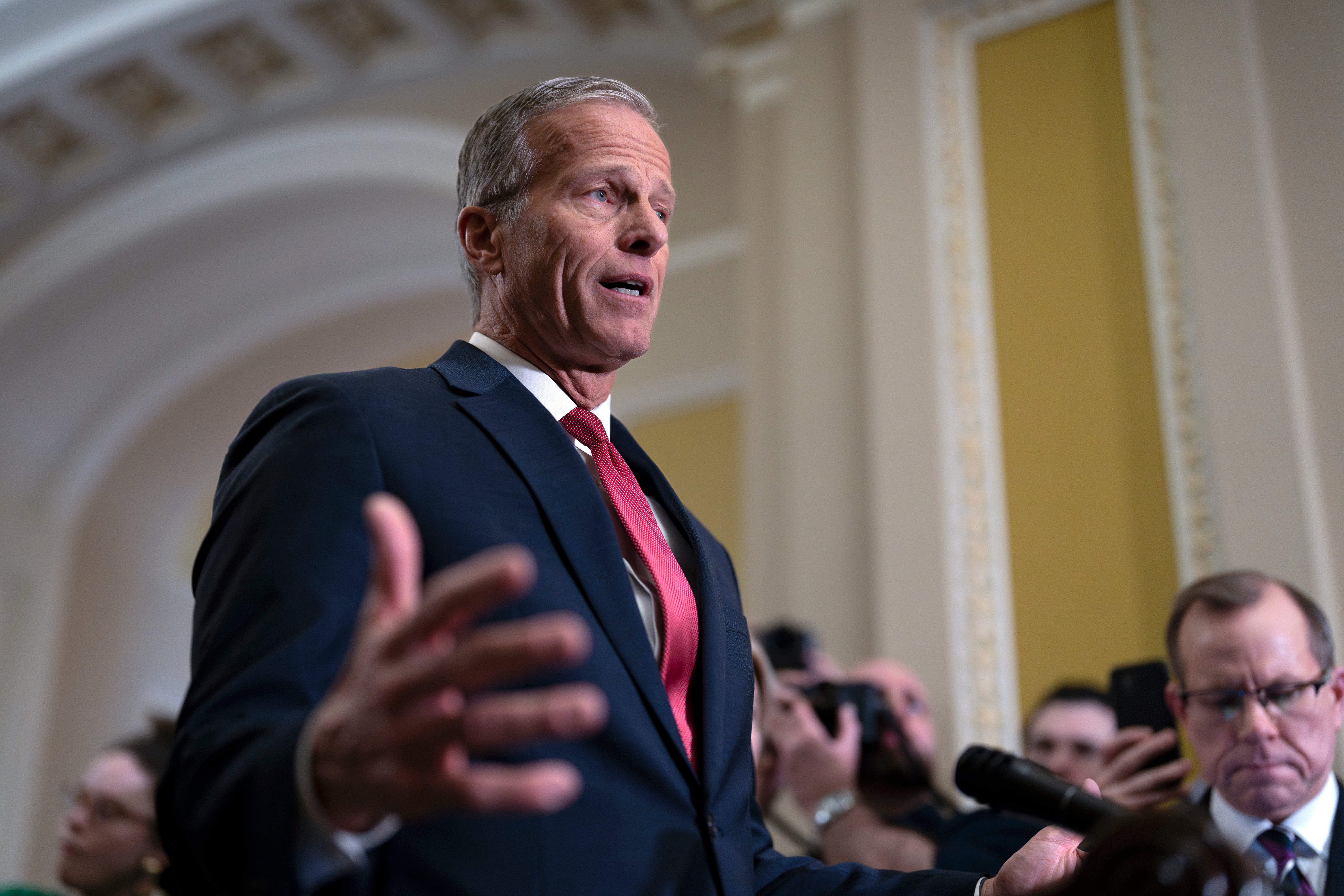ARTICLE AD BOX
President Donald Trump’s much-touted “big, beautiful bill” narrowly squeaked through the House of Representatives in the early hours of Thursday in a vote that passed 215 to 214.
After days of negotiation with Republican holdouts and hours after the legislation passed the House Rules Committee, it made it through a full House vote with just three GOP representatives breaking ranks to vote against it and risk Trump’s wrath.
The bill now passes to the Senate ahead of an informal July 4 deadline, where the Republican majority is also slim and where plenty of discontent likewise lingers.
“They cobbled together a very delicate balance over there… but, you know, the Senate will have its imprint on it,” Senate Majority Leader John Thune said of House Republicans after the president finally got his win.

“They’ve got to do what they can get 218 for, and we’ve got to do what we can get 51 for.”
Senate Budget Committee Chairman Lindsey Graham declined to wholeheartedly support the bill in its current form. On Thursday, he told The Independent it was “a step in the right direction,” but he reserved judgment: “We’ll find out what they pass.”
Objections in the House largely came from fiscal conservatives and Republicans in blue states seeking tax cuts for their constituents. Still, unease surrounding the package extends beyond Congress and threatens to spill over into the wider MAGA movement.
“I have not changed my mind one bit on this bill,” former White House chief strategist Steve Bannon said on his War Room podcast this week.
“This bill could be a lot better. I’m very concerned about the deficits in the short term, but given the totality of President Trump’s program, it’s the best you’re going to get for right now. And I’m very upset.”
Bannon went on to complain that the $150bn allotted for defense spending is too high, that he disapproved of social security taxes and tax cuts for the wealthy, but that he grudgingly accepted the need to “go on [the] offensive to be able to sell this… to the global capital markets.”
Now Republicans in the Senate will have their say, and many have concerns of their own.
Senate Leader Thune, like House Speaker Mike Johnson, has a number of fiscal conservatives in his own chamber to deal with, many of whom consider the bill’s spending cuts too weak and are likely to demand a $2trn ceiling, a $500bn increase on the present package.

The House’s relatively minor changes to Medicaid financing rules risk being blocked by senators as different as Missouri’s Josh Hawley, Lisa Murkowski of Alaska, and Susan Collins of Maine. All of whom fear that any tampering with them would be an election loser.
Others want to make the bill’s short-term business tax cuts permanent and wipe out the cost of further extending $ 3.8 trillion in expiring Trump tax cuts by employing contentious accounting tactics that their colleagues may not be able to unite behind, according to Politico.
Still, more senators are worried by the House bill’s requirement that states cover at least 5 percent of the cost of federal food assistance programs for the first time. This could hit some red states harder than others, notably Alaska and South Carolina.
Opposition also exists to the bill’s gutting of renewable energy tax credits created by the Democrats’ 2022 climate law, with senators like North Carolina’s Thom Tillis fearing a loss of investment and jobs in their states as a direct consequence.
Finally, senators are also likely to object to the bill’s agreement to raise the state-and-local-tax (SALT) deduction cap from $10,000 to $40,000 (phased out for taxpayers making more than $500,000), which was a redline for the likes of New York Rep. Mike Lawler but which Wisconsin Senator Ron Johnson has already opposed by flatly demanding: “Eliminate it.”


.jpg?trim=0,0,0,0&width=1200&height=800&crop=1200:800)






 English (US) ·
English (US) ·